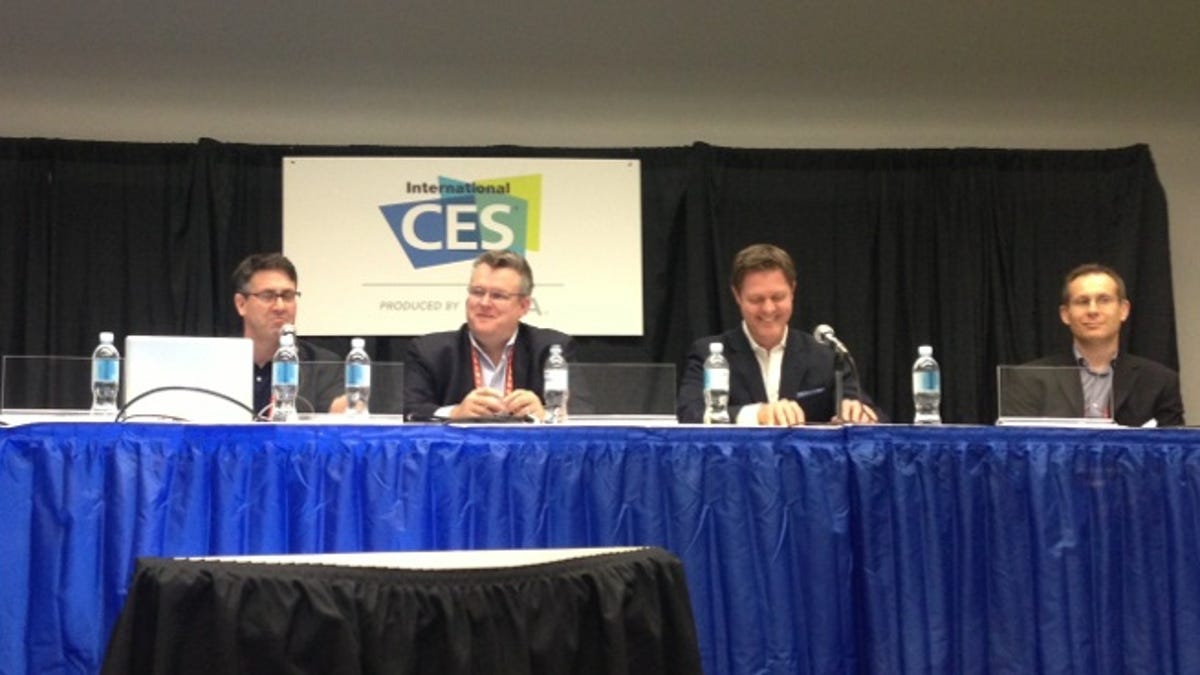2013 social TV predictions from the experts at CES
When looking in their crystal balls, experts predict that social media will dramatically alter how we experience television content in 2013.

LAS VEGAS--What will the social TV landscape look like in 2013? Experts weighed in with their predictions at CES during a panel discussion on how social media is changing TV consumption, discovery, and measurement.
Social television can be defined as the intersection of television content and social networks. The category also considers how consumers engage with TV-enhancing applications on second screens like mobile phones and tablets.
Moderator Michael Wolf, a Forbes contributor, put the social TV crystal ball question to Richard Bullwinkle of Bullwinkle Inc., Jack Flanagan of BlueFin Labs, and Trevor Stout of Yap.tv. Their answers ranged from the obvious to the proactive.
Flanagan, the head of business development of BlueFin Labs, which provides social TV analysis to networks and brands, had the most thought-provoking prophecy for the year. At least one major national TV advertiser will put a secondary requirement around social engagement on their ad buys, he said. In Flanagan's vision of the immediate future an advertiser like Pepsi would require a minimum amount of tweets or social reactions before making their ad buys.
Bullwinkle, who's previously worked for Rovi and Tivo, made the not-so-bold prediction that at least one television network would develop a fully interactive show where viewers using social media influence every plot line or outcome, and possibly compete for prizes. This type of programming seems inevitable as several networks have experimented with partial implementations of socially driven plots. "America's Top Model," for instance, recently broadcast a season that incorporated fans online votes and comments into judges' scores that determined which contestants remained on the show. The social undertaking was particular notable because the show airs months after taping.
With his projection, Yap.tv Chief Executive Officer Trent Stout opted for something less social and more practical. He believes the remote control will be replaced by smartphones and tablets, though he admitted that this would require a significant behavior change on the part of consumers. Bullwinkle was quick to shoot down the prediction, saying that the TV remote is far too cheap to be replaced by the pricier smartphone right now.
Stout also said that we'll see more content developed exclusively for second screen applications in 2013. This educated guess is also a no-brainer as Shazam, Yahoo-owned IntoNow, and pay-TV service providers such as Yap.tv are all exploring how to get consumers more interested in using companion applications while watching TV.
Predictions aside, all the panelists agreed on a few key things. The consensus was that social applications and experiences don't work on the actual television set, despite their prevalence on smart TVs. Secondly, all of the panelists believe that social TV is still in its infancy, or rather its "first or second inning," as Wolf said.

